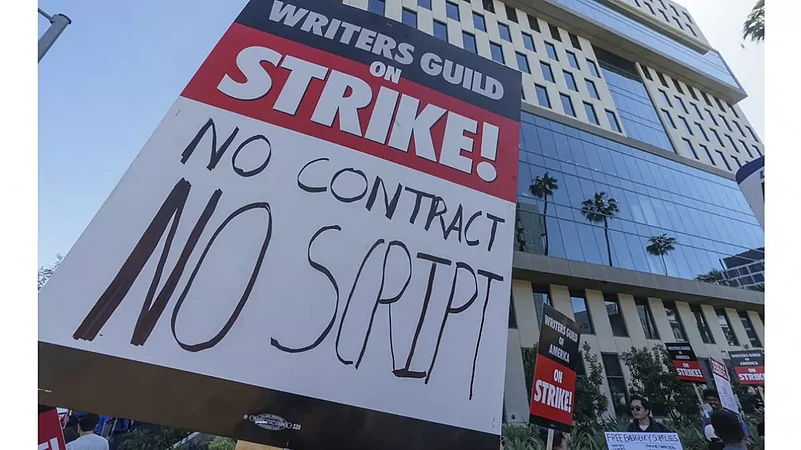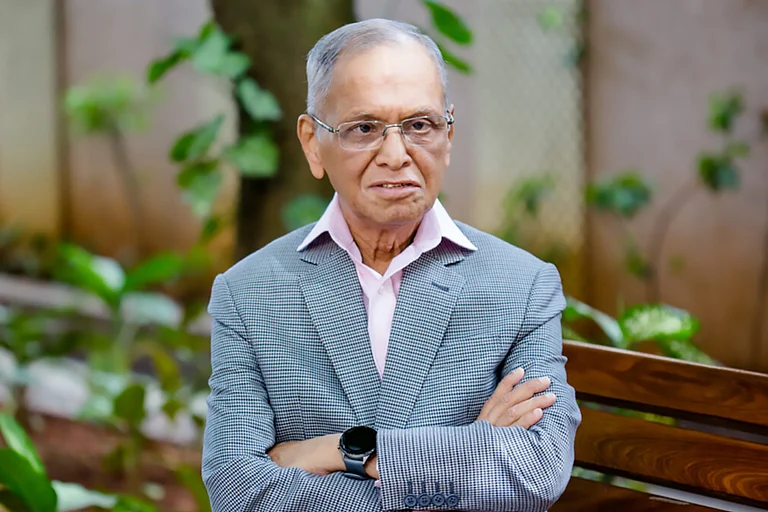The Writers Guild of America (WGA) strike in United States has managed to grab headlines across the world. The strike, which began on May 2, has affected the shooting of several popular shows like Stranger Things and Emily In Paris. Through their strike, writers in America have raised one key demand - fair contracts.
As the WGA strike drags on, a survey of Indian screenwriters published by research firm Ormax Media and talent agency Tulsea indicates that the demand for better contracts is prevalent in the Indian industry as well. While the spotlight has been on the struggles of American writers, the Indian counterparts are trying to bring attention to their own demands to receive better pay and credit for their work.
Writers’ Struggle
According to the Ormax-Tulsea survey, while 65 per cent of Indian screenwriters believe that the pay levels of writers have improved recently, 63 percent still say that they are not paid fairly. Majority of writers in the survey raised the problem of how the scope of the work expanded after signing the contract without any additional fee being paid for the extra work.
Highlighting the problem of unfair pay for writers, the Screenwriters Association (SWA), a trade union of Indian screenwriters, says that contracts have become one-sided in favour of platforms and producers.
SWA’s Executive Committee Member Anjum Rajabali, a veteran screenwriter known for writing films like Ghulam and Raajneeti, says, “The bargaining power between individual script writers and big corporations is grossly unequal, much to the detriment of the writers. As a result of this, contracts have now become even more one-sided than they used to be. All the rights of producers are protected but not of the writers. In contract negotiations, the vulnerabilities of young writers are being exploited.”
SWA’s General Secretary Zama Habib, known for writing TV shows like Nimki Mukhiya and Sasural Genda Phool, says that cost of living and writing have increased in last few years and contracts need to keep the interest of both writers and producers in mind.
Along with problem of receiving fair pay, screenwriters also raise the issue of not receiving proper credit for their work. According to the Ormax-Tulsea survey, 53 per cent of writers say that they are not given proper credit for their work. The dissatisfaction of writers with the credit they receive in promotional and marketing activities increases to 65-80 per cent.
The survey also says that nearly 2 out of 3 writers believe that there is no consistent standard on how writers have to be credited for their work.
On the issue of receiving credit, Rajabali says that who gets credit for a piece of work should be dependent on the work an individual writer has done. “However, contracts have this overriding clause which says that the final credit would be at the discretion of the producer or the platform. This is unfair and unjust,” he adds.
Writers say that the concerns over fair pay and credit highlight the problem of contracts being one-sided. They also point to the existence of release forms which some producers require while accepting story pitches.
Commenting on release forms, Chandrima Mitra, partner at DSK legal, says, "The concept of release or submission forms started with the coming of the international studios which has now been adopted by a lot of Indian producers." Primarily, she says that producers get this form signed to deal with potential claims of copyright infringement or breach of confidentiality for the works they receive.
However, the SWA claims that the interests of the writers are not entirely protected through these forms. Alleging how the forms are one-sided, Rajabali says, “The most offensive clause in these kinds of forms is that if a writer submits a script and then at some point in future the producer makes something which is similar to their submission without giving credit then the writer can’t take any action. This is ridiculous.”
The SWA has called for a change in how these forms are drafted to ensure more protection for the rights of writers. Rajabali says that while generic similarity in work is understandable, writers should receive their fair dues if a producer has used their work.
Agreeing with the need to accommodate protection for writers, Kartik Krishnan, Head of Development at Dice Media, says, “Release forms are an unfortunate consequence of the style of functioning where people are submitting pitches and producers have to go through them to ascertain whether to work on the idea. I feel we need to find a middle path to ensure that interests of both the writers and producers are protected.”
Not only standard release forms, SWA has been asking producers to agree on a standard contract which will ensure some basic protections for the writers. The union wants to negotiate with the producers collectively on behalf of their members. As the writers in America push their demands through strike, will their Indian counterparts follow suit?
Road Ahead For Indian Screenwriters
The SWA says it has drafted a minimum basic contract which can introduce several basic protections for the writers. According to the union, the basic contract will protect writers from arbitrary terminations, improper crediting and introduce a minimum fixed pay at least for films. The minimum fixed pay will be commensurate with the budget of the film, the union says. The Ormax-Tulsea survey also found that the demand for hybrid contracts with a mix of fixed pay and incentives is popular among the writers. Around 91% of surveyed writers said that they will be motivated to do better work if they receive such contracts.
Rajabali says that protection of fixed pay will help younger writers due to their vulnerable position in negotiations. He adds, “We intend to meet the producers and platforms to sit and agree on a standard contract through collective bargaining on behalf of the writers' community. Through these negotiations, we intend to provide some level of protection to writers. What we are asking for is more than reasonable and none of our demands hurts the producer.” According to the veteran screenwriter, this process may begin in the next two months.
However, both Rajabali and Habib stress that they believe a solution over the issues of writers can be reached through negotiations with producers. Habib says, “We don’t want to get into a fight with the producers or platforms over our demands. I believe we can solve the problems by sitting on the table and discuss each other’s side to reach an amicable solution.”
With the writers’ strike continuing in the United States, which has brought works on several Hollywood projects to a standstill, it remains to be seen how negotiations in the Indian industry will pan out. However, the desire to not continue with the status quo is clear with writers in both countries expressing their desire for change. Only time will tell if this will translate into better contracts.
































